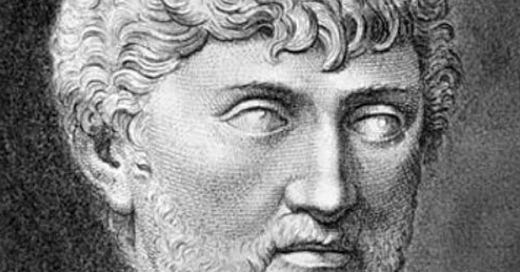Dear Classical Wisdom Member,
There are times when reading the words of the ancients that you feel as if you are tapping into an eternal truth. When the ideas and concepts resonate so deeply that it’s as if your mind is literally expanding and the proverbial light beams brightly.
Other times the words result in a scrunched brow and a retreated breath through clenched teeth, along with a confused “eh?” or “ugh” of disbelief.
Many times these completely disparate reactions are the consequence of your particular situation, dependent on time and place.
For instance, there are many who confide that Sophocles’ play Antigone speaks to them because of their experience of civil war or their inability to properly mourn or bury their dead.
As someone who is fortunate enough to report no lifetime experience of unburied loved ones or civil strife, Antigone, instead, to me is a story of a young woman standing up to unjust laws and an overpowering state.
Same play, very different takeaway.
Today’s article is certainly one of those ancient texts that will provoke distinct emotions among you... especially on a day like today when everyone is thinking about the Roman Empire (right??!)
For those of you for whom the martyred 3rd-century Roman St. Valentine reminds you of the loss of love and heartbreak, you will find company and empathy with the Roman philosopher and poet, Titus Lucretius Carus (99-55 BC).
For those of you who are busy buying chocolate covered flowers (as I’m wont to believe), today’s article will make you all the more grateful that you are not currently experiencing love induced pain.
And for the rest (or indeed all of the above), you will certainly find it fascinating to see how the ancients also discussed love, relationships and how to get over a break-up. Read on and see if you agree with Lucretius' advice, including his ideas on the origins of love, below...
Happy Valentine’s!
All the best,
Anya Leonard
Founder and Director
Classical Wisdom
P.S. Love yourself... or love another with all our Classical Wisdom gifts…
Bring the wisdom of the ancients to your home! Whether it's our book 100 years in the making or our new collection, you can see everything in our shop:
How to Get Over a Break-Up… and Other Love Tips from Lucretius
By Alex Barrientos
Being lovers of Classical Wisdom, you are likely familiar with Epicurus and his school of thought. His remedies to deal with the fear of death, his description of what the blessed life consists of, and his praise of friendship, among other things, makes him a lovable figure in the history of philosophy.
However, Epicurus might not have survived the annals of time if it were not for Lucretius.
This is because Titus Lucretius Carus (~94-50 BCE), slightly less well known, is responsible for carrying on the torch of Epicureanism into the Roman world. The teachings and maxims of Epicurus were preserved by Lucretius in his philosophical poem On the Nature of Things (De Rerum Natura). In this work Lucretius captures not only the Epicurean approach to life but also explains the Epicurean approach to studying the natural world, as well as the underlying metaphysical and epistemological views that formed the Epicurean method of inquiry.
Lucretius also had some advice to offer on love. Now, you might be wondering, what could an ancient Roman philosopher-poet have to say about love that would be of any relevance to us today? Well, plenty as it turns out… in fact, reading this back in high school might have saved me a lot of troubles!
Origins of Love
According to Lucretius, the body is the source through which the “mind is pierced by love.” Think, for instance, of how the wounded person falls “in the direction of their wound”, how the “blood spurts out towards the source of the blow”, and how the “enemy who delivered it, if he is fighting at close quarters, is bespattered by the crimson stream.”
Similarly, Lucretius tells us, when someone is “pierced by the shafts of Venus”, that person “strives towards the source of the wound and craves to be united with it and to transmit something of his own substance from body to body. His speechless yearning is a presentiment of bliss.” This yearning, this striving to be united with the source of the wound, is the very origin of love — “that drop of Venus’ honey that first drips into our heart, to be followed by numbing heart-ache.”
So, basically, love hurts, because we love what hurts us.
Viewing the body as the source of love makes sense too when we reflect on how much the feeling of love impacts the body. Think of those early days when love first sparks; how we feel “butterflies” in our stomach, how our heart starts racing, how we blush and even sweat in the sight of the object of our love. Further reflections like these suggest that Lucretius is right, that the experience of love is not entirely a mental experience, it is one that is very much rooted in the body.
The Bitterness of Love
From the very heart of the fountain of delight there rises a jet of bitterness that poisons the fragrance of the flowers.
Though we are apt to think of love in positive terms, Lucretius did not have so rosy a view of it. According to Lucretius,
Keep reading with a 7-day free trial
Subscribe to Classical Wisdom to keep reading this post and get 7 days of free access to the full post archives.






